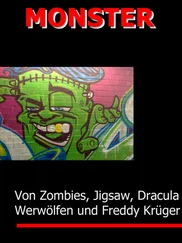Parson just upstairs—
Upstairs? Can he hear?
Not if we quiet. Ease up on me, sir!
He say nothing then. Just hide under the steps.
PARSON LAYING FOR ME STILL. Nesting. He look up at me and yawn.
Well?
He awake, I say. Foster.
Parson give a stretch. Well! I should go and see him, then.
You gone pour the Deemer in him, ain’t you.
That would be telling.
Virgil burnt the other one, I say. The carcass.
Yes. That’s all correct and proper.
His promise, I say. The Deemer’s. You aim to keep it, Parson?
Parson in high spirits all up a sudden. He laugh. I haven’t forgotten it in the last quarter-hour, Doddsbody.
You aim to keep it?
He give me a whistle. He give me a wink.
I make a breath and groan and drop down on my knees. Let it be tomorrow, I say. I won’t bear another hour, sir. I can’t. I’ll dig the rest they holes tonight. Ah! Let it be tomorrow, Parson. Learn me how to speak the tongue!
Parson study me a good long while with he tom-cat face and he pebble eyes.
It was always going to be tomorrow, Charlie, he say at last. He reach under himself and come out with my bottle. They a powder in it now.
Angel of mercy! I hisper. Sweet righteous angel!
Dig your holes, pilgrim, that you may rest.
MY LAST DAY AT GEBURAH BEGINS SOFTLY, Virgil says. I’ve been sitting in the lampless parlor half the night when the house-door sighs open, delicate as hackled lace. A moment later Parson flutters by. He glances into the parlor as he passes, shading his eyes, but fails to see me slumped over in the dark. He moves on down the hall. The cellar door opens, then shuts, and I draw in a breath. I rise from the settee more carefully than a spinster. A draft curls about my shins, leafy with the smell of coming rain. Something is going to happen. It sits like a clot of river-bottom in my throat.
Parson is quiet as dust on the cellar steps but he can’t keep them from creaking subtly as he descends. His oversight has given me an advantage over him, the first in our long acquaintance, and I’m determined not to let it pass. I steal lightly down the hall. He’s left the cellar door unlatched. I reach the top of the steps just as he gets to the bottom.
To go any farther would be to lose straight-away, so I crouch at the top of the steps and bide. I see nothing but the rough pine boards leading down into the blackness—; I hear nothing but my own unsteady breathing. I’ve just begun to wonder whether Parson hasn’t vanished through some fissure in the earth when a voice comes out of the gloom, measured and precise, no more than an arm’s-length below me—:
“Open your mouth, Mr. Foster. Have a drink.”
Parson’s voice, talking to the prisoner. Somewhere just beneath the steps. A moment later he speaks again, so close that I fancy I can smell his breath. He speaks as though he and Foster were having a tea-time chat—: there is no cajolery in his voice, no spite, no menace. But Foster hasn’t said a word.
“I got this out of the river for you, Mr. Foster,” Parson says. “Mr. Delamare, the half-caste, is in the habit of dunking himself in the current, for the performance of his personal ablutions.” A pause. “Mr. Delamare was meant as a conduit for the Redeemer. To be what Thaddeus Morelle once was. But Mr. Delamare, unfortunately, is unwell. Mr. Delamare has been taken with the grippe.”
Another silence. In my eagerness to hear I nearly tumble down the steps.
“Not at all!” says Parson suddenly, as if in answer to a question. “Mr. Delamare is not the Redeemer’s successor—; you fail to take my meaning. The Redeemer is his own successor, Mr. Foster.”
A low, scudding sound, as of a barrel being pushed aside. Then Parson’s voice—:
“How long until the Yankees take this house?”
No reply. Parson heaves a sigh, then asks almost idly—:
“How many men are encamped above the shanty-town?”
This time an answer comes readily, but in a voice I’d swear was Parson’s own, grotesquely falsettoed, as though he were acting a part in a traveling theater—:
“Half—; a—; company. No—; cannon. Thirty—; muskets. Eighteen—; rifles. Seventy—; blacks—”
“ Seventy blacks? Freed-men?” Parson says, interrupting.
Then, in his stage voice—: “Freed-men—; contrabands.” Another pause, and the voice resumes—: “Sundry—; blacks—; have—; knives.”
“I’d say our time is dwindling, Mr. Foster. Dwindling quite away. Is that also your opinion?”
No answer. A bright, dusty squeak, as of wood against wood—: someone is leaning against the steps. Parson clucks impatiently.
“The time is fast approaching, Mr. Foster, when there will be no Mr. Foster any longer. No Mr. Foster—; no opinions. Time enough to be quiet then.” He lowers his voice. “We’ll both be quiet then, you and I. Like school-boys when the master arrives, sets the day’s lesson on the table, and hangs up his long gray coat.” He hushes a moment. “I, of course, as teacher’s pet, may be permitted to raise my hand from time to time. But if I were you, Mr. Foster, I’d air your opinions while you may.”
Just then a hard, smooth object — glass, or perhaps iron — is run up the underside of the steps. This so startles me that I’m unable to make out the prisoner’s next words. I hear only Parson’s amused reply—:
“He’ll come to you painlessly, through your open mouth. You’ll swallow him, Mr. Foster, exactly as you would a biscuit.”
A tinkling now, as of glass against glass.
“Why? Because you’re docile, Mr. Foster. And reasonably pretty.” A pause. “The Redeemer has a terrible fear, you see, of awakening in the body of Virgil Ball.”
At the mention of my name I recoil from the cellar door as if I’ve been cuffed. The pantry is across the hall and I scurry toward it. Parson’s heard me now—: he must have heard me. I cast frantically about for a hiding-place, make a slow, stumbling circuit of the room, and crawl at last under the cutting-block. The pantry is empty and neglected-looking—; I wonder passingly what’s become of Dodds. Out digging a hole for himself, most likely.
No sooner am I settled than I hear foot-falls on the cellar steps. If Parson goes out to the verandah, he’ll pass through the pantry and discover me—; if he leaves by the front door, or retires to his attic, I retain my advantage over him. Out of a sense of propriety, a desire to act my part, I gather my coat around me and take in a breath.
He comes to the top of the steps, hesitates, then glides in his ecclesiastic way upstairs. Not bothering to look for me. It must no longer matter what I hear. Does he think me so incapable, so weak?
I listen until I hear the door to the attic shut, or fancy that I hear it. It seems to me that Parson paused a second time — perhaps outside of Delamare’s sick-room — but I’ve no way of telling. I picture Delamare to myself, flushed and wasting on his pallet—; then the prisoner in the lightless, airless cellar. I understood only a fraction of Parson’s dialogue with Foster — if dialogue it was, and not play-acting — but it was more than enough to guess at his design. I was right, then, about Dodds’ holes, about the map of the grounds, about the Redeemer’s return. “A conduit for the Redeemer,” Parson said. “What Thaddeus Morelle once was.” “Redeemer” was an office Morelle held for a time—; that much is clear. An office now come vacant. A position to be filled. I step out into the hall, undo the laces of my boots, and steal in my stockinged feet down the cellar steps.
Читать дальше












